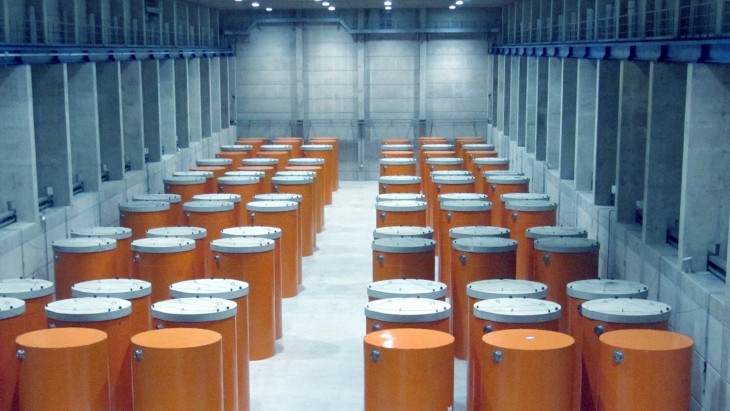Finland's Posiva to support Lithuania used fuel disposal
The general criteria for Lithuania to dispose of its used nuclear fuel will be studied by Posiva Solutions, a subsidiary of the company that is doing the job on behalf of Finland's utilities.

Interim storage of used nuclear fuel at the Ignalina site (Image: Ignalina NPP)
Under a year-long contract that enters into force, Posiva Solutions will "discuss the principles that will ensure the safety of used nuclear fuel and long-lived radioactive waste storage in a geological repository, the methodology for long-term safety assessment, the methods to be used for safety assessment, software and data," Ignalina NPP said.
The support also includes discussion of "the principles that will ensure the safety of used nuclear fuel and long-lived radioactive waste storage ... the methodology for long-term safety assessment, the methods to be used for safety assessment, software and data."
Lastly, Posiva will also perform a general safety assessment of geological formations potentially suitable for a used fuel repository in Lithuania and will prepare general criteria for the construction of it.
Ignalina NPP noted that the design of the eventual repository system would need to comply with Lithuania's general nuclear safety requirements for nuclear facilities, which themselves are in line with the recommendations of the International Atomic Energy Agency.
Posiva is jointly owned by Finnish nuclear power companies and has developed that country's geological disposal facility at Olkiluoto. The main tunnels are excavated and at the end of last year Posiva submitted an application to operate it and begin disposing of fuel from 2024.
Four large RBMK reactors at the Ignalina nuclear power plant provided 70% of Lithuania's electricity until their closure as a condition of joining the European Union. The power plant is being decommissioned by the company Ignalina NPP, which has removed fuel from the reactors and placed it into dry casks for interim storage at the site.
Researched and written by World Nuclear News
- China Institute of Atomic Energy
- Nuclear Power Institute of China
- Southwestern Institute of Physics
- China Nuclear Power Operation Technology Corporation, Ltd.
- China Nuclear Power Engineering Co., Ltd.
- China Institute for Radiation Protection
- Beijing Research Institute of Uranium Geology (BRIUG)
- China Institute of Nuclear Industry Strategy (CINIS)
- China Nuclear Mining Science and Technology Corporation


